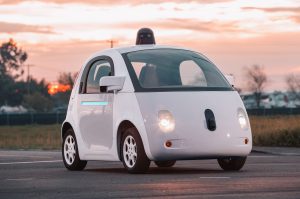Tech companies in the social networking industry have been accused of sharing users data with governments around the world under the pretext of giving that information to law enforcement agencies to protect against crime. This widespread monitoring of citizens from various government around the world was illustrated by Edward Snowdon revelation that the US government conducts widespread online surveillance of citizens(Edward). Furthermore other governments such as the Chinese government are already well known for monitoring it’s citizens online activities for instance, a 26 year old man named of Wang Long was arrested in China for “reposted at least six photos from Twitter and Facebook about the occupy protests”(Shenzhen). This begs the question of whether social media networking companies should increasingly make use of each country’s legal system to defy unjustified government requests for user’s personal information so as to be perceived by the public as an ethical company standing up for individual rights.

For example Facebook state on their government request for information website that they currently only hand over user’s personal information only “in accordance with applicable law and our terms of service”(United), although the Edward Snowden revelation puts doubt into this claim. To improve it’s public image as an ethical company that protect’s it’s online user’s rights to privacy and right to freedom of expression, Facebook can go to court by citing the US constitution’s fourth amendment(Baltzell). A new policy stating explicitly that only when sufficient probable cause of a crime is produced by law enforcement agencies will Facebook hand over user’s data would boost Facebook’s public reputation by clearly illustrating to the public that user’s privacy is protected unless sufficient probable cause is produced. The value proposition canvas shows us that consumer pains of the fear of using social media to express their opinion out of fear of potential retaliation from the government will be reduced. I have made use of Maelin cheung’s Comm 101 blog as inspiration for Facebook’s need to stick to it’s ethical values where she talks about the need for What’s app whose owned by Facebook to stick true to it’s principles and not hand user’s data over to Chinese authorities.

Furthermore Tencent and Weibo could theoretically state the Chinese constitution’s article 35 guaranteeing freedom of speech, to stop government interference although this would be to no avail. However to be fair Tencent does state that they hand user’s data over to the government according to an outside blogger named “Inés Casserly”(Casserly).
Overall, technology companies involved in social media should where possible make use of the judicial system in each state to protect user’s data from governments so as to improve their public reputation and boost the proliferation of free speech using social media.
Word Count: 448 (without in text citation)
Key: (..) indicates an in-text citation
Outside Blog References:
-Casserly, I. (2017, September 27). WeChat reminds users of its privacy statement [Update]. Retrieved October 27, 2017, from https://thenextweb.com/apps/2017/09/22/wechat-reminds-users-of-its-privacy-statement-update
Comm 101 Blog:
blogs.ubc.ca/maelincheung/ (No APA citation format)
Online References:
-Baltzell, G. W. (n.d.). Constitution of the United States – We the People. Retrieved October 27, 2017, from http://constitutionus.com/
-Edward Snowden brands Facebook ‘shameful’ as social network is accused of secretly backing US data-sharing scheme. (2015, October 27). Retrieved October 27, 2017, from https://www.computing.co.uk/ctg/news/2432164/edward-snowden-brands-facebook-shameful-as-social-network-is-accused-of-secretly-backing-us-data-sharing-scheme
-United States. (n.d.). Retrieved October 27, 2017, from https://govtrequests.facebook.com/country/United%20States/2016-H2/
-Shenzhen man detained after posting Occupy Central pictures. (2014, October 01). Retrieved October 27, 2017, from http://www.scmp.com/news/china/article/1605553/shenzhen-man-arrested-after-posting-occupy-central-pictures


